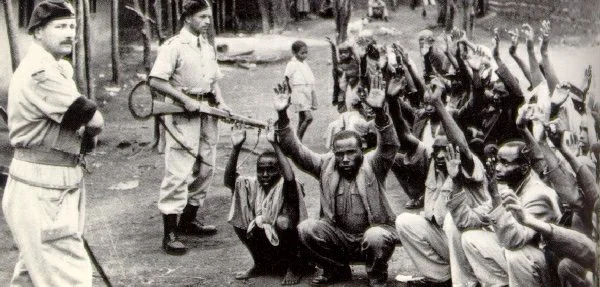The Ekumeku Movement — One of the longest-lasting and toughest battles against the Ekumeku occurred during the British colonization of Nigeria. A movement led by the Igbo subgroup known as the Anioma and their neighboring Igbo allies.
What Triggered The Start Of The Movement?
In an attempt to increase their colonial control over Nigeria, the British turned north of the Niger Delta. But they were caught off guard when they came upon fierce opposition inside Western Igboland.
The Royal Niger Company’s colonial rule in the late 1880s sparked violence, particularly between Anioma groups like the Ika.
Out of fear of foreign domination, they developed a growing hatred and hostility toward the company after its attempt to dominate the locals.
A covert resistance movement against British rule, the Ekumeku secret organization was founded by groups of young men from different villages who came together to form “otu okorobia” groups in order to defend themselves against foreign invaders.
How Did The Conflict Play Out?
The Igbos’ freedom and culture were further undermined by the British as they attempted to firmly establish themselves around Asaba and Western Igboland.
The following were some of the methods the British employed to seize control:
- Creating Native Courts, which took away authority from the traditional council of elders
- Choosing local chiefs and making them do what they want
- Constructing mission stations and pushing Christian missionaries to preach a new faith, condemning the native people’s ancient religion.
People were outraged by all of these incidents to such an extent that the Ekumeku movement became well-known.
Among the most hated were those employed by the British government, missionaries, and European trade. Numerous mission buildings and Native Courts were set on fire and looted.
At Ogwashi-Ukwu, Britain made a critical military error that forced them to withdraw and request reinforcements from Lagos. Like the Eastern Abam warriors, the Ekumeku were feared at the height of their strength and influence. Both gained fame for creating havoc and destroying the places they invaded.
The British Niger Company was forced to fight the Ekumeku in 1898 because they were preventing its agents from operating in the area outside of Asaba. A peace agreement was reached that allowed the company to be freed from all political and administrative duties in Nigeria and lasted until 1900.
What Made The Ekumeku Resistant To British Control?
The term “Ekumeku” cannot be translated into English. However, it brings up thoughts of terms like “uncontrollable,” “whirlwind,” “invisible,” and “devastating,” among others.
The British misinterpreted the nature and roots of the Ekumeku movement, which helped the people to resist for a considerable amount of time. They were therefore unable to interact with them in an efficient manner and facilitate negotiations between the Ekumeku and the Southern Nigerian Protectorate.
Unfortunately, after 30 years of struggle (1883–1914), the Ekumeku were finally defeated by a series of military setbacks, trials, and imprisonment by Native Courts.
Reference: Oriji, John N. Political Organization in Nigeria Since the Late Stone Age: A History of the Igbo People , 2010.





